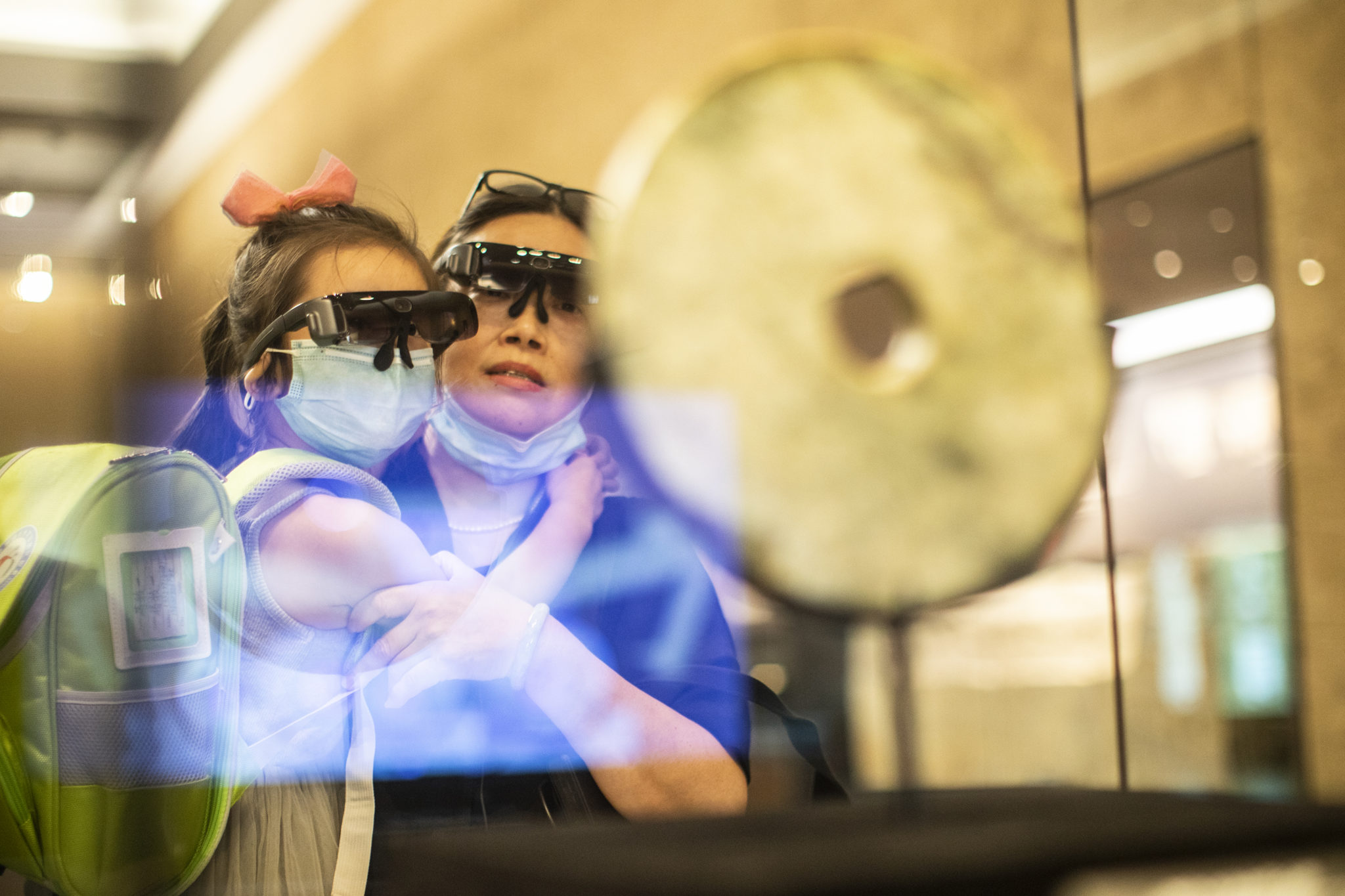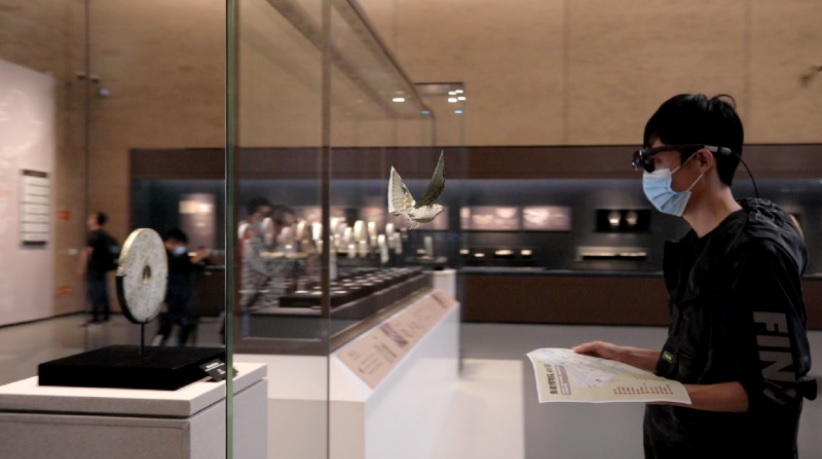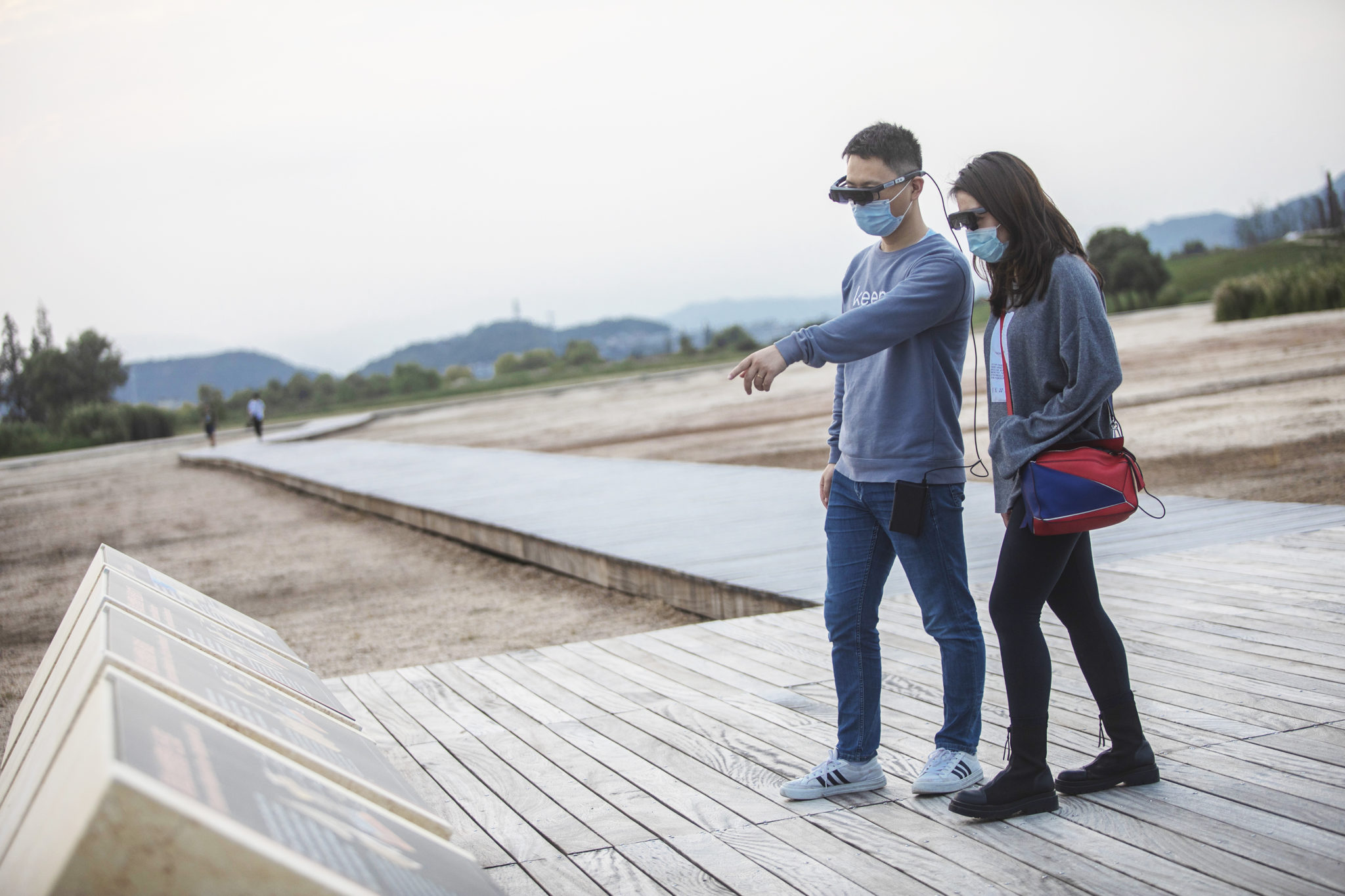
September 29, 2020 – Rokid, a provider of augmented and mixed reality (AR/MR) glasses, has recently announced that it has partnered with the Liangzhu Museum and Archaeological Site in Hangzhou, China, to offer museum visitors an augmented reality guided experience using the company’s Rokid Glass 2 wearable AR device.
The AR ‘guide glasses’ act in a similar way that an audio guide would work at a museum or cultural spot, and feature visual recognition and voice recognition in order to provide visitors with informative visual guides and explanations of what they are viewing at Liangzhu.
The ancient city of Liangzhu was listed as a World Cultural Heritage in July last year. The sacred site demonstrates “five thousand years of Chinese civilization”, covering a total area of 34 square kilometers. More than 1,000 precious cultural relics were excavated from the site and are now stored in the Liangzhu Museum and open to the public for display.
Visitors to the museum and archaeological site can put on a pair of Rokid Glass 2 smart glasses and are then able to experience the ancient city as it is brought back to life using AR technology. Once wearing the smart glasses, the wearer is presented with information overlaid on top of the real world cultural objects and relics on display when they look at them. Information such as symbols and totems carved on to the relics appears in the wearer’s field of view and a dedicated video and audio commentary can be seen and heard.

One experience offered by the smart glasses involves a jade bi (a type of circular ancient Chinese jade artifact) that features a bird hieroglyphic on it. When a visitor looks at the artifact, a digital bird flies out and circles around them.
Another AR feature at the Liangzhu Archaeological Site sees a virtual tour guide lead visitors to several AR experience points across the site and an AR map navigation function display directions, important visiting points, and a visitor’s current location in real time. Historical buildings are simulated and restored in real scale through Rokid Glass 2, allowing visitors to travel back in time to see how the site has evolved throughout history.
Rokid stated that other use cases of spatial positioning technology within its AR glasses could include being able to assist tourists to find restrooms, transit stations, AR points of interest, and more.

Staff at Liangzhu commented: “This is the first time the Archaeological Ruins of Liangzhu City have used AR technology to guide, inform, and restore historical artifacts for visitors. We want to find new ways of engaging people with our collection outside of a traditional museum setting. Rokid Glass 2 helps visitors to explore new ways of interpreting the artifacts and to look at the stories from a new perspective. It is an innovative method of showcasing the museum’s collection”.
Rokid Glass 2 is a foldable device, designed to look like an ordinary pair of sunglasses, but that can also display visual elements in front of the wearer’s eyes, such as text, pictures, videos, and 3D objects. The device features a hands-free voice control interface, object recognition capabilities, and remote assistance features, such as real-time annotation, screen sharing and multi-screen display options. Rokid added that its glasses have currently been sold to nearly 40 countries worldwide, including to customers in the US, Canada, England, and Singapore.
Visitors will be able to try out the Rokid Glass 2 AR experience for free starting in October at two sites: The Archaeological Ruins of Liangzhu City, Liangzhu Museum; and Liangzhu Archaeological Site. For more information on Rokid, please visit the company’s website.
Image credit: Rokid
About the author
Sam is the Founder and Managing Editor of Auganix. With a background in research and report writing, he has been covering XR industry news for the past seven years.
